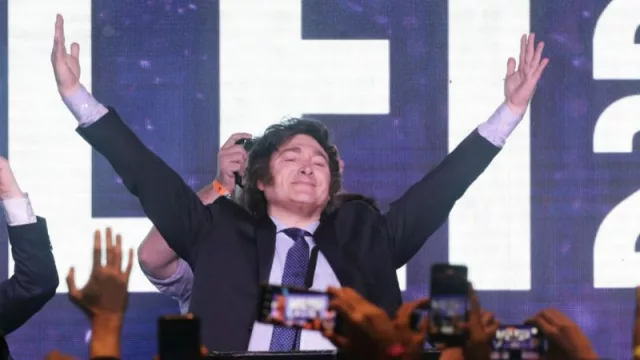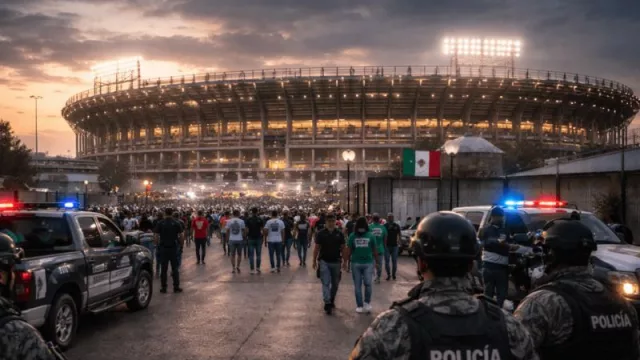Strategic Insights into Argentina's Political Transformation:
The outcome of Argentina's elections reflects the continuous ebb and flow that Latin America experiences in its quest to strike a balance between right and left ideologies.
Argentina's bold step represents a milestone in self-awareness, ending over a century of self-deception through misguided policies. Previously concealed beneath a veneer of comfort, the country regressed across economic and social indicators. Gone are the days when Argentina ranked among the world's top three economies in the early 20th century. Today, it faces challenges like high inflation, 50% poverty rates, and an imposing tax burden, placing it among the countries with the highest public expenditure.
Despite La Libertad Avanza's candidate securing around 31% of the votes, society remains cautious about embracing the natural and coherent changes that Argentina must collectively embrace. While glimmers of agreement emerge from parties like “Juntos por el Cambio”, deep-seated fears persist, stemming from cognitive, social, and ideological biases cultivated by a century of statist and populist ideologies. This resistance poses the primary challenge in Argentina: acknowledging that the apparent comforts of past populism have profoundly debilitated the nation, its culture, economy, and security, and that shared decisions transcend partisan ideologies.
Nevertheless, Milei's victory signifies a historical transformation in Argentina. This democratic verdict shatters the century-long grip of populism in the country.
This political shift occurs amid potential transformations in Venezuela, even more pronounced due to the intensified crisis, led by Corina Machado.
The impact is also evident in Bukele's comprehensive leadership in El Salvador, yielding remarkable economic and social indicators, solidifying an impressive 92% positive approval rating. This sets a model for Latin America focused on tangible results for improved state administration.
This scenario intertwines with Donald Trump's resurging positive global perception, marking a new wave of change in the United States.
Final Results of Argentina's PASO Elections:
Final Analysis of the Outcome:
These results strongly signal the electorate 's preference and can significantly influence the forthcoming presidential elections on October 22nd. If these results hold for the general elections, a competition between La Libertad Avanza and Juntos por el Cambio for the presidency is foreseen.
In his declaration, Javier Milei presents himself as the true opposition, emphasizing his party's quest for real change in the country. Furthermore, he underlines the potential of a first-round victory and a challenge to what he labels "the establishment." His success in the PASO highlights significant support for his proposed policies and political approaches.
Evidently, Argentina's political landscape is undergoing remarkable transformation, as evidenced by the PASO results. Javier Milei, as a libertarian figurehead, has made a prominent mark, emerging victorious in the majority of provinces, indicating rising support for this ideological movement across the nation.
The transformation in provincial power dynamics since the last primaries in 2019 is intriguing. Milei's victory in 16 out of 24 provinces illustrates the growth of his movement and the resonance of his message across diverse geographical spectrums. Furthermore, his triumph in historically less supportive provinces underscores a shift in voter preferences.
Politics is a dynamic field, demanding close observation of events and reactions in the upcoming months, as the presidential elections will shape the nation 's trajectory for the next four years. Milei, a libertarian figure, emerged as the winner in 16 out of 24 provinces, with the exception of Catamarca, Santiago del Estero, Chaco, Formosa, and Buenos Aires, where Sergio Massa of Unión por la Patria prevailed. The remaining provinces—Entre Ríos and Corrientes—and Buenos Aires city were secured by Patricia Bullrich of Juntos por el Cambio. It's fascinating to witness the shifting power dynamics across provinces since the last primary elections in 2019. These results also underscore how traditional parties, like Unión por la Patria and Juntos por el Cambio, have retained their influence in specific regions, such as Catamarca, Santiago del Estero, and Buenos Aires. However, Patricia Bullrich of Juntos por el Cambio has also managed to gain prominence in Entre Ríos, Corrientes, and Buenos Aires city, reflecting diversity in outcomes and the presence of multiple political forces.
This alteration in power dynamics and the emergence of new figures and political movements could exert a significant impact on the presidential elections and the country's political configuration in the years ahead. This shift is meaningful not only for Argentina but also across Latin America and serves as an indicator for the U.S.
Close monitoring of evolving political trends and the unfolding electoral competition in the lead-up to the general elections is of paramount importance.












Tu opinión enriquece este artículo: